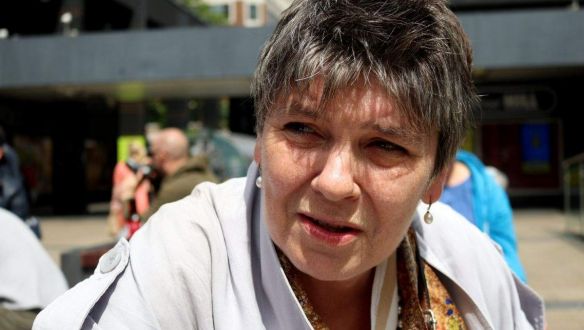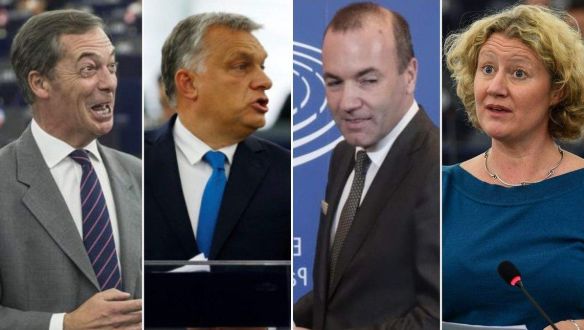Thank you, Mr. Barnier! Claire Fox, newly elected MEP of the Brexit Party in interview with Azonnali
Claire Fox cares neither about the next British Prime Minister nor about the next President of the European Commission. Former Brexit-negotiator Michel Barnier has a good chance for the latter position, but Fox said: 'lots of people who voted to stay in the EU, now support the Brexit Party, and it is partly because of the behaviour of Barnier'. The new MEP of the Brexit Party also tells us about Macron and about Orbán: not everyone in the party is as impressed about the Hungarian Prime Minister as Nigel Farage is. An interview.

How long do you expect to be a MEP?
Not very long, I hope. The deadline now is the 31th of October. I hope that we will be gone by then. However, as the British establishment is determined to not let us leave, I dread the thought that we might drag on.
What can you do for Brexit as a MEP? It is up to the British Parliament to negotiate and agree about it. How could you affect that?
Standing for this election was not because we think that the European Parliament is a great place to be. After all, we voted to leave it, and we don't think it's a democratic body anyway. So it was partly why we were standing for this election, to give a certain sense of hope to those people who felt that their democratic vote have been betrayed. And to make it more positive, rather than fostering it negatively; as a kind of cynicism about all politics that could go wrong, if people believe that politics doesn't represent them anymore.
It's not really about achieving Brexit. But showing that there is still support amongst Leave voters and putting pressure on the British government, whoever they are. We also try to raise all of these issues on a wider international, European platform.
What is the difference between Europe and the EU?
Europe is a continent, indeed. I've solidarity and friends, I love Europe. I don't love all of it, I love lots of countries, I'm interested in European politics, as I have been all my life, I'm international in that sense. It's because of the imposition of the EU, which constrains the national sovereignty of different nation states. That's a concern. It's about democracy. It always was about democracy for me. So if you are in a situation, when you have an imposed set of rules, that override anything you might decide nationally, and will affect certain member states more than others, then that will take away from the sense of accountability.
Do you think you've succeeded to threaten the Conservatives? Boris Johnson already published a self-critical article in the Telegraph about not keeping their promises.
The Brexit Party has had an indirect impact on the internal tensions within the Conservative Party. Because they are in government and they have promised to deliver Brexit. They can see that there is a danger that their party will actually collapse if they don't, because a lot of conservatives voted to leave. But it also had a very big impact on the Labour Party. The Labour Party has now become almost schizophrenic as a party. It gets very strong support amongst people who want to remain in the EU.
But its traditional voters, the workers largely voted leave. And they feel despondent about the way the Labour Party has behaved. In this country, there has always been a strong left-wing euroscepticism, coming actually from leading icons within the Labour Party. That tradition was betrayed in the referendum. So I think that's going to have a big impact on both parties in the end.
Are you satisfied that Theresa May has resigned?
She should have resigned a long time ago, but I don't think that's going to solve their problem. The problem is much deeper than the leader.
Who should follow her?
I've no idea. I mean, I'm not a conservative, I don't care about the personalities involved. I've been involved in journalism and left wing activism for a long time, but I genuinely thought after we voted to leave the European Union, that the government would help us leave the European Union. I feel naive now, I was genuinely shocked, because they just ignore the voters. This election has reignited the whole thing again.
Okay, you don't care about the tory leadership. But you have to care about the leadership of the EU: the next president of the Commission and the next president of the European Council. Who could be the proper people for these positions, considering Brexit?
No, I don't care about that.
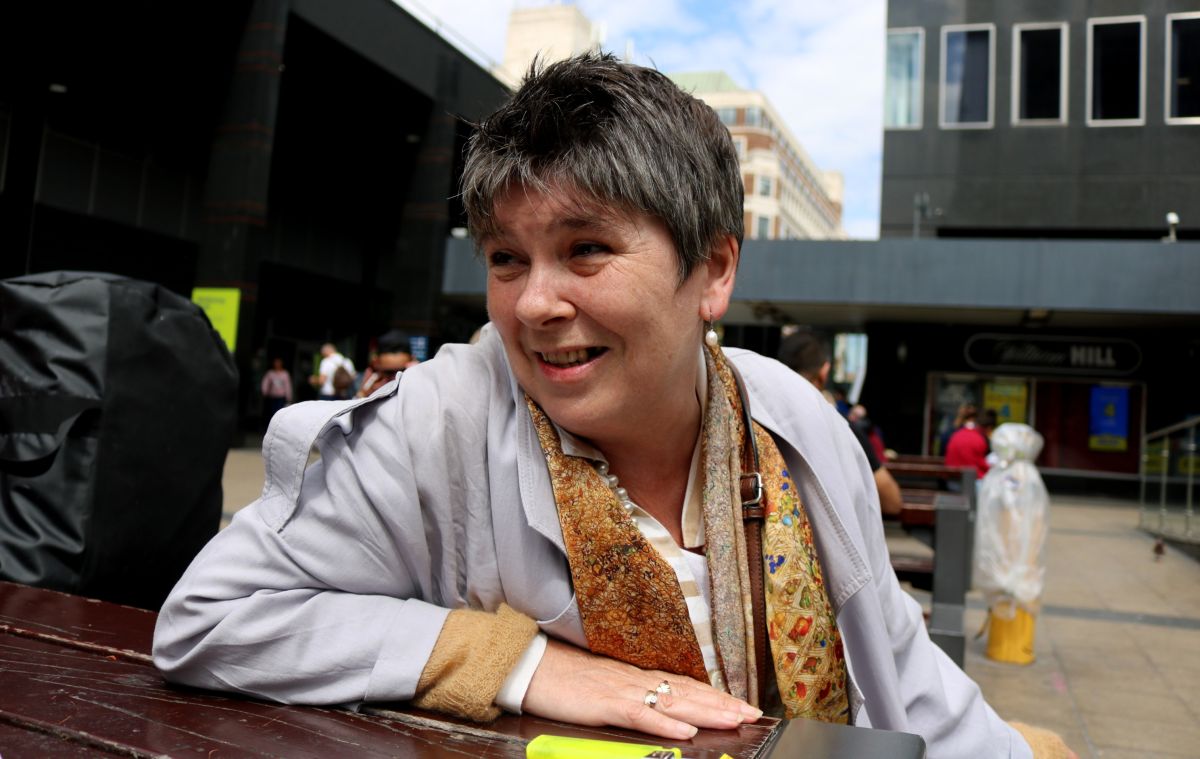
But they are also part of the Brexit process.
It doesn't matter. This is an undemocratic institutional body to me. So whoever is in charge, even if somebody who is more sympathetic to the Brexit, it is not the point. The point is that it is not in the interest of the European Union to let the UK leave the EU easily. We all know, if that happens, that might ignite euroscepticism in other countries. It's like a punishment. If you're thinking of leaving the EU, then you think, 'Oh, my God, we should recall, because look at what they've done to the British'. But Britain voted to leave, and the British economy actually survived: we look like we're doing all right.
Look at what's happening in France with the discontent of the Yellow vests movement! The way that Macron, who is pro-EU, has set the police in the riot and treated ordinary French citizens like dirt: like criminals, like the enemy within. Those things barely get reported by the way, because Macron is the pro-EU, the save-EU man. So I have a sense of solidarity with those people.
Thanks to Macron, Michel Barnier has a good chance to be the next president of the Commission. As a chief Brexit-negotiator, he was quite strict.
You know, lots of people who voted to stay in the EU now support the Brexit Party, and it is partly because of the behaviour of Barnier.
So you can say thank you to him.
Every time they open their mouths, people, who had thought before that the EU was a nice, friendly organisation, suddenly think: 'who the hell do you think you are, you can't talk to us like that!' I mean, they've been explicitly antidemocratic, they've explicitly said that the British people made a mistake. It proves the very point, which is that they don't think that nation states should be able to make decisions for themselves. And I do! And I think that not because I'm a nationalist, but because I'm a democrat.
And the only way that, we have a vote democratically in the recent years, is through our nation sates. You can't just say, we're all European citizens: you have to fight within your nation state about what specifically is wrong. These Commissioners are appointed, that's undemocratic and unaccountable. Barnier has exposed just how antidemocratic the EU is, but in some ways, it wouldn't matter, if he was leading the EU because of the way the whole setup is designed.
Then let's support no deal Brexit?
Yes. We've now got to the point where no-deal Brexit is the only thing on offer. Because we have squandered a waste of three years of not negotiating a proper deal. So it is not that the people voted leave saying, we won't have a deal. We assumed that the deal would be negotiated in good faith. I don't blame the EU for this by the way. I blame the British government for it.
And then they did a deal with the EU. So they never negotiated in a way that any serious negotiator would do, which was to say 'this is what we're doing, this is what we want, we say goodbye, give us a ring if you want'.
If you had the referendum today, would you put the question in the same way? Just as a simple yes-no question, without preferences?
It was put the way it was put, in a constitutional fashion. And I think that people did know what they were voting for then. They did understand it, it was very clear. People on the other side, on the remain side, gave us every possible scenario. They said, if we voted to leave, that would be out of the customs union, that would be out of everything. And they kept saying that, and it was used as a threat: 'do you realise, if we do that, we're just gonna be out'? And people said, 'yes, we've realised that, we still voted leave'.
So, you might say, should have they ever called a referendum, and that's a different question. But once the British government outsourced the decision to the British people, and told them, looking them straight in the eye, that 'this is the most important vote you've ever participated in, and this is a vote for a generation or our lifetime', then what you do is that you accept that decision. That's why it is so important to defend.
You were criticised because of your former comments about the IRA. Isn't there a danger that the Northern-Irish conflict renews because of Brexit? Because there has to be a border somewhere: either between Ireland and Northern-Ireland, or within the UK.
These comments are entirely unrelated. When these comments were made, which were written in a magazine that I supported, there was an active war going on in Northern-Ireland, there were British troops.
Is there no threat that such a conflict occurs again over the issue of the border?
No. No. That war has been over for a long time. The row then was about the lack of civil liberties for Irish nationalists and the fact that British troops were in. It was a horrible conflict with lots of tensions and victims on both sides, and was very complicated.
Since the Good Friday Agreement, which was decided in Northern-Ireland by a referendum, which I accepted, there's peace now in Northern-Ireland and I am delighted. End of story.
People from then, who disagree with me only about the European Union, try to use comments that were made 25 years ago to discredit what I am saying about Brexit today. It's called dirty politics.
So your question about today in the Irish situation is this: the Irish border is a problem to be solved but it is not one, that people can't solve. And even the Irish government, when they recently thought that there's going to be no deal, said: 'we will not impose a hard border on Northern-Ireland.' The EU said that there is no need for a hard border on Northern-Ireland. So it's being used, I'm afraid, to try to threaten people with this.
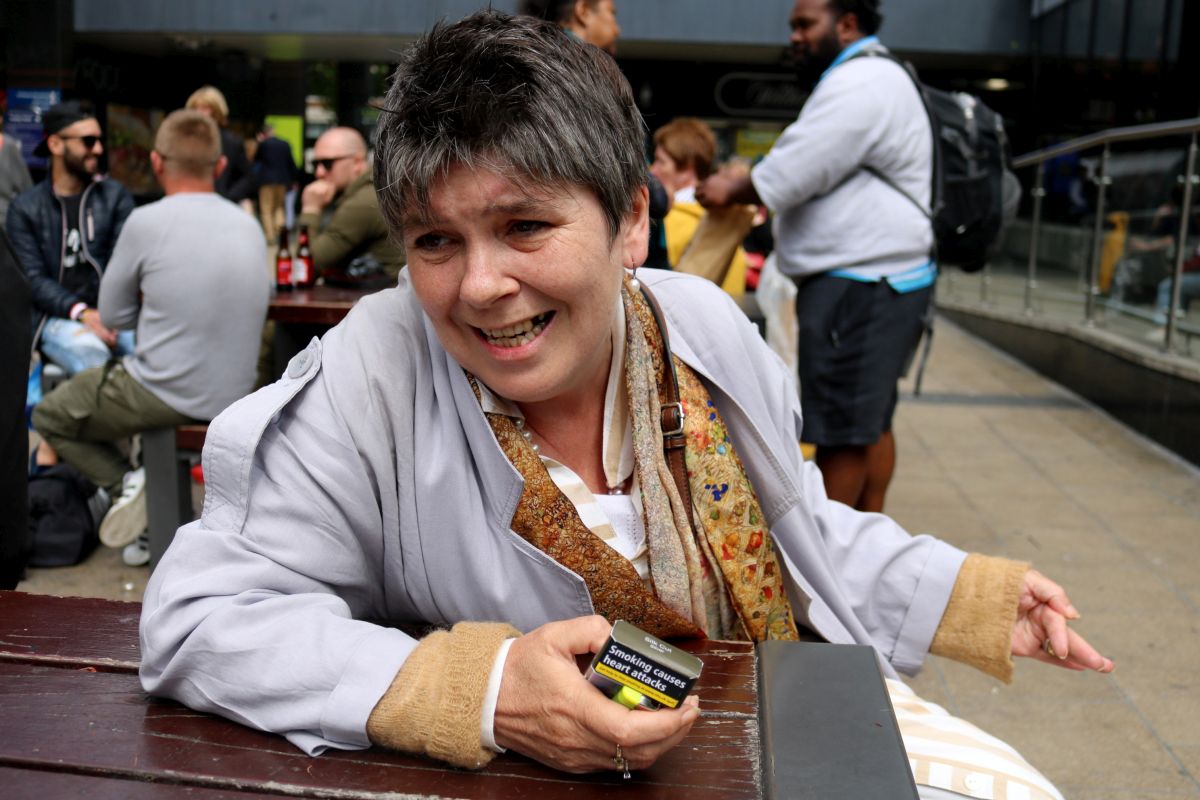
But if there's a no-deal Brexit, there should be a hard border, shouldn't it?
No, it won't be a hard border. There is way of managing borders, you know, between different countries that are not even in the EU, which does not lead to war in our lifetime, right? It is not an impossible task. Those tensions exist no more, this is a very different situation of the past.
Should the Eastern-European workers go home in the case of a no deal Brexit?
No, absolutely not. It's never been about that. The point about immigration and freedom of movement is that who decides who crosses over borders. Do borders matter?
But you aren't a member of the British Parliament so you cannot guarantee that.
No, I can't guarantee anything but it's a democratic decision. We all have a role about it.
So you will decide and we will see...
No, no. You have to have control over your borders in order to decide who can cross them. The European Union removes the democratic decision about your borders from you as a nation. That's a different question. Borders must mean something. I am pro-immigration but I think it needs to be democratically decided within any nation state, and they're absolutely arrogant of saying: 'we will decide what happens in Britain in terms of its border controls'. That was a tension three years ago. Since we voted to leave, it's actually not an issue. But it's been used against us, trying to say that anyone who voted for Brexit is xenophobic, racist. There are many Eastern-Europeans here who absolutely oppose the EU.
Not everyone in Poland or in Hungary thinks that the EU is a wonderful place. I's never been about kicking out Eastern European workers. That's what the other side says we wanna do because that makes us look like far-right lunatics. None of which is true.
Nigel Farage always says nice things about Viktor Orbán. Last time he said that Orbán is the future of Europe. Does everyone agree with him in the Brexit Party?
I am sure that's not true, I certainly don't. I am very critical about Viktor Orbán but it is also true that in this country, the way that Orbán is discussed is that he is the devil. He is a democratically elected politician. I wouldn't vote for him. But you cannot just have this arrogant attitude. It is up to the Hungarian people to decide who they vote in. He is like Donald Trump. I can't stand Donald Trump, but I do recognise that he was democratically elected, and it is also the case that Hillary Clinton was a terrible opponent and the Democrats in America still haven't come up with anyone better.
That's what democracy is like: you don't always win, often, you lose. The Conservatives are in power here, they're not my favourite party, but I have to accept that my fellows since voted for them. That's the way it works. And the alternative to democracy is that you have an authoritarian regime who decides what's of the best interest of the people.
Why wouldn't you vote for Viktor Orbán?
He's just not my kind of politics. I am a left-liberal. He probably wouldn't like me either.
He used to be liberal. And you used to be a member of a communist party. People are changing.
I know. I don't want to demonise him. All I am saying is that
Somebody said to me recently: 'well, Viktor Orbán has been sending the police against demonstrators'. And I said: 'yes, so is Macron'. And they said: 'that's completely different'. Macron is doing that every week, but because he is pro-EU, they pretend it's not happening.
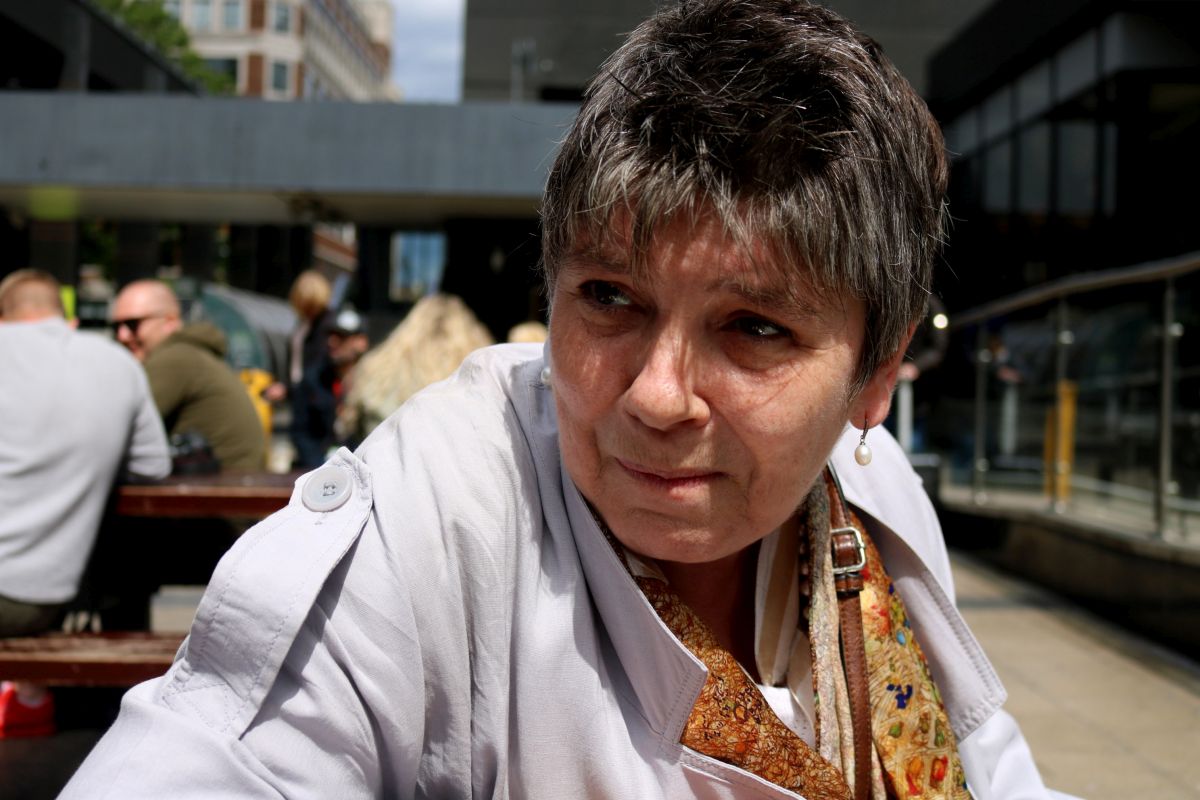
Will you join a group in the European Parliament, or will you be independent?
That's going to be a challenging question. The way that the parliament works is that there are groups and I suspect that we will be in a group with people I don't like.
There may be places for you in the group of Matteo Salvini.
Goodness knows, there'll be a negotiation. But it doesn't matter where I sit in a group, I will be voting as myself.
Will you vote about other questions than Brexit, too?
I'm very reluctant. Because that's what is problematic in the European Parliament: a robust stamp sent down from on high by the Commission. So you're not in the position to initiate anything. But I'm gonna be there for three or four months, there will be committees, I'm interested in education, in the media, in arts. And I might go and sit into those committees to try to make things sensible. But I won't be fooling myself that this is a place where change will be made. I will be using this as a platform to initiate a discussion about the antidemocratic nature of the EU to a wider audience to which I had in the UK.
PHOTOS: Martin Bukovics / Azonnali

Tetszett a cikk?

Az Azonnali hírlevele
Nem linkgyűjtemény. Olvasmány. A Reggeli fekete hétfőn, szerdán és pénteken jön, még reggel hét előtt – tíz baristából kilenc ezt ajánlja a kávéhoz!
Feliratkozásoddal elfogadod az adatkezelési szabályzatot.
